REVIEW: Other People at Canadian Stage
The following review is a conversation between Intermission Senior Editor Aisling Murphy and theatre critic Karen Fricker. Karen and Aisling both attended Other People on the evening of Thursday, March 24, 2022.
The following is a transcription of Karen and Aisling’s conversation, which took place over Zoom on the evening of Friday, March 25, 2022. It has been edited for length and clarity.
Aisling Murphy (AM): So… here we are again. Hi, Karen Fricker!
Karen Fricker (KF): Hi! Here we are in a review of a play about people at a spiritual retreat. Didn’t we just do this? What kind of a coincidence is that?
AM: Right? Is the Toronto theatre community okay? Like, does everyone need to meditate right now?
Yeah. Let’s do this. I have to say, I appreciate that you were the one who started the clapping when Daniel [Brooks] came out onstage at first. I don’t think everyone realized who that was.
KF: That soft open is part of the whole effect of the show. Even before that, it was… I don’t know if ‘jarring’ is the word, but it was definitely notable that the theatre was at full capacity. That felt like we were at the next level of ‘return to the theatre.’
AM: I can’t have been the only one sitting there and thinking, ‘okay, we’re back at 100% capacity, and he’s onstage, and he’s not wearing a mask, and he’s terminally ill.’ This feels risky, especially for this show. I was surprised and curious about that resonance.
KF: And then, just to add to that theme of surprise, to meet this person who is so antic and goofy and in the moment. It’s a version of Daniel Brooks with which I was not personally familiar. I know him as more intellectual and reserved. It’s a show about a guy who’s living with Stage IV cancer, and it comes at you in a really unexpected way, to me at least.
AM: Totally. I couldn’t stop thinking about the opening to Willy Wonka and the Chocolate Factory, where he comes out and does his little somersault.
And the Toronto theatre-ness of the show really comes through, too. There are a lot of Robert Lepage jokes in that play.
KF: Given that, what’s interesting to me is that it’s not a show about the theatre. The substance of it is him struggling for self-presence at a meditation retreat. It winds up being something pretty open to a general audience, I think.
AM: I agree to an extent. I do think that most audience members, regardless of their acquaintance with Toronto theatre, will get the show. But I do think there’s a perfect storm of an intended audience for this piece — they’re familiar with Toronto theatre, and they have personal or anecdotal experience with cancer, and they care about mindfulness and/or meditation. If you check all those boxes, and I’d say, comfortably, that about a third of the audience on opening night did, then, yeah, this is the show for you. I’m personally, like, one-and-a-half of those things, so it was interesting being there and realizing about halfway through the show that Other People wasn’t made for me, and that was okay.
It’s a version of Daniel Brooks with which I was not personally familiar.
KF: What he’s taking on is at once both enormous and extremely small and specific — one man’s experience of trying to sit in meditation for ten days. You’re brought inside that very specific internal battle. But the show’s also about how this man in his sixties is coping with a diagnosis, his relationship to it, and how people relate to him about it.
AM: Through that, too, it kind of hits all the squares in Solo Show Bingo, doesn’t it? There’s that relatability both on the macro and micro scales. You’ve got generational trauma being touched on, which we see in his relationship with his Jewishness and his parents. You’ve got the individual trauma of cancer. You have a blank stage with a single chair, which is a little trope-y. I was fascinated by how much of a capital-s Solo Identity Show this was. I didn’t hate it for that.
KF: Why would you have, though?
AM: Because the solo identity show is a little played out at this point, but then, also, it’s Daniel Brooks: he doesn’t need to be trope-y in order to be understood or sympathized or empathized with.
KF: Can you explain what you mean by trope-y?
AM: Yeah! That presentational, TED talk-style, solo show. Go to any Fringe and count how many of those you see. Even in Canadian regional theatre, we’re seeing more and more of those kinds of shows. They’re certainly expanded in terms of their aesthetic scope — Jivesh Parasram’s Take d Milk, Nah? is a great example of that — but it’s still, at the end of the day, a guy on stage talking about his life. I think there’s a lot of that in the Canadian canon, and I think that breaking the boxes within that canon is tricky. It was interesting seeing Brooks not interested in breaking free from those boxes, but still doing something super-effective within them.
KF: I think there are people for whom references in the show will resonate. This is the first solo show that Brooks has ever performed himself, and I found resonances with Daniel MacIvor’s renowned solos that Brooks directed – the chair as lone prop, for example. MacIvor was the dramaturg of this show and particularly at the beginning I felt like Brooks was playing MacIvor – that knowing, impish manner.
AM: Yeah, absolutely. It’s somewhere between paying homage and full-on emulating in a way I found really interesting. And, as an aside, with my own tastes and interests, I also couldn’t not think about Fleabag, in terms of the aesthetic of ‘person onstage with chair.’
KF: Adam Lazarus did the movement, and the moments at the top of the show that seemed more choreographed, I felt Lazarus’ hand in that. Those were three really interesting sensibilities to see informing each other — MacIvor, Brooks, Lazarus. I thought it was a strong choice that the choreographed quality faded away once the retreat narrative kicked in; they trusted the storytelling and the performance to take over.
Kimberly Purtell did the set and the lights. She’s been working with Brooks and MacIvor for decades. From a tech perspective, the show was spot-on. The sound design from Thomas Ryder Payne, as well. There were a lot of things that needed to work perfectly in terms of timing, and they did. You felt like, ‘here’s some serious professional chops.’
AM: Those cues, even though they’re really precise, they’re also really simple. It’s so cool to see such a simple technical conceit somewhere that has the budget and the capacity to execute it perfectly.
It’s so cool to see such a simple technical conceit somewhere that has the budget and the capacity to execute it perfectly.
KF: So, how did you respond to the focus of his story being these stories he writes in his head about other people? It’s the title of the show, and it’s him obsessing about these other people on the retreat. One in particular, ‘Tony Small’ — he’s obsessed with thinking the guy doesn’t like him. It becomes this circular, rabbit-brain thing he has to dig himself out of.
AM: I found it interesting, because as much as he populates these people’s lives with made-up details, he’s doing the same thing to himself. At the end of the show, we know just as much about these other people as we do about him — it’s almost as if he conceives of himself as another person. We get these allusions to an unspecified ‘Her’ character, we know he went to Upper Canada College, and he’s Jewish, and he has a complicated relationship with his parents — his insistence on focusing on other people confirms that he’s got this split in himself between him the person, and him the cancer-haver, which I found to be a really interesting tactic.
KF: Yeah, and that’s cued in the beginning, when he shows us the x-ray of his lungs and establishes that there’s our hero, this person called Daniel Brooks, who’s not exactly him. A full exploration of this splitting into self and not-exactly self would have been a total early ‘90s, Brooks-MacIvor, height-of-post-modernism outing, but it doesn’t really go there. We get a moment of ‘I have to acknowledge that I’m playing myself,’ and some of us will think of Judith Butler, and then we move swiftly on.
AM: It also kind of makes me wonder how he thinks about himself, even as simply as ‘good’ or ‘bad.’ I find at the end, when he comes to this conclusion that we’re surrounded by an ‘annoyance of people’ in the way one might refer to a ‘murder of crows’ — people are this bother he lives with and has to accommodate. I found it interesting how he presents not only other people and his estimation of them, but, by extension, himself, as well.
KF: This show is a lot to do. It’s an hour and forty minutes long. He’s alone onstage. He never even took a drink of water. He is remembering a huge amount of text. And there’s emotional work being done there — he’s talking about his own life. That was the thing I sat with, and talked about with my friend afterwards. What an incredible achievement of presence that was. He was alive, and present — physically alive, mentally alive, and emotionally alive — at a high level for a long time.
I struggle to bring this up without veering into dangerously hackneyed territory: this man is living through theatre. The level of exposure — but not self-indulgence — I found really remarkable.
AM: Same here. In terms of that lack of self-indulgence, we never really know who ‘She’ is, nor do we really need to. He makes these really generous allusions to his personal life without actually jeopardizing that it is his personal life. That’s a really hard line to walk in confessional theatre. I was quite impressed by that. By the end of the show, he’s managed to talk a lot about himself without telling you a lot about himself.
I’m curious if, going into this — and this probably could have come up in our Light review too, come to think of it — are you someone who does meditation, yoga, mindfulness, that sort of thing?
KF: I do yoga, but… Shows like this invite us to put ourselves into our hero’s situation, and I am so far from being able to do anything like the meditation he describes, even for the first twenty minutes.
What’s your connection to that world?
AM: None whatsoever. This idea of policing your own thoughts, this constant string of ‘don’t think about this, don’t talk about that’ — that’s already what my brain does day-to-day. My brain is always at a frantic million miles a minute. So to then enter that space, and that context, where the only thing to do is think ‘don’t do that’ — I couldn’t do it. Those moments in the show, where he’s doing body scans of himself, and where I imagine everyone in the audience is following along internally in their own body — ten days of that, for me, would be absolute hell. I will never. Hard no.
Many of the comments Brooks makes about his fellow meditators are quite rude, quite disparaging. I wouldn’t be any different, I don’t think. I’d be snarky, too. I understood Brooks in that way.
KF: His internal battles are part of what grounds the show — there’s this kind of Woody Allen-ish, self-deprecating humour, and there’s the very high spiritual ambition of self-presence with no judgment and no ego. The battle between these is a very potent comic scenario.
AM: He breaks the tension immediately, too, dancing onstage and just bellowing out ‘I HAVE CANCER.’ Yeah, at that point, you’ve destabilized us, and we’re ready to follow you wherever you want to go from then on. I found humour was placed so effectively.
Brooks has accomplished something so astonishing, and we have to commend that.
KF: I want to return to your statement that this wasn’t the show for you, but that that was okay. What about it wasn’t for you?
AM: I’m privileged to be able to say that I’m a twenty-three year old woman who hasn’t had terminal anything, I’m not chronically ill, no one in my immediate family is chronically ill. This is a world pretty far outside my own — hell, I’m even still comparatively pretty new to the Toronto theatre scene. The world Brooks builds is a world I understand, but it’s one that didn’t gut-punch me. I heard the sniffles around me, and the laughs at things which, to me, weren’t necessarily funny, but I realized they could be to someone else. I sort of realized as it progressed that it was going to be a show about meditation, and cancer, and aging — those are three things to which I can’t relate, but that so many other people can and will. And that was fine — I didn’t mind sitting with that discrepancy. I think I was almost more willing to engage once I came to that conclusion, that moment of, ‘this is a thing to which I get to bear witness, and that’s all I’m doing.’
KF: And what about as an experience as a return to live performance?
AM: This felt like a really brave programming choice in terms of coming back. It’s not a super flashy or extravagant return to live theatre.
KF: Canadian Stage meant to come back with something flashier, also directed by Brendan Healy: David Greig’s Solaris, sci-fi onstage. That was going to be big, I think, and involve lots of stagecraft, and instead what we got was super-distilled, and quiet — an intimate return with a beloved figure.
AM: Holy hell — a solo show with Daniel Brooks, Daniel MacIvor, and Brendan Healy. You can’t make that up…I think as far as the return to live performance goes, that’s what we needed.
KF: There is one other thing: when you’ve got something numbered, like the number of days in a retreat, and when that number is projected onstage, it doesn’t often work in favour of a theatrical experience. From time to time I did wonder when we’d get to the next day.
AM: I appreciate you bringing that up. I think it’s day six of the retreat, actually, that’s the issue. We got a few different vignettes on the same day, and in my head, with some snark, I definitely thought, ‘oh, come on. It’s time for day seven. Let’s go.’ That said, kudos to him for keeping up that energy and that engagement the whole time. The entire performance felt like he was performing directly to me, and that’s really hard to do.
KF: It was interesting to me that the one theatre artist he mentions by name is Lepage. The show made me think a lot about this idea of a career in Canadian theatre. Brooks started a lot of companies, worked for a lot of companies, has directed and participated in any number of award-winning, now-canonical productions, and yet — as he self-describes in the show, he’s over-educated and under-employed.
AM: Preach.
KF: And if there’s anyone in Canadian theatre who’s managed to become wealthy off it, it’s Lepage, who is a benchmark against whom many artists will measure themselves, for better or worse. So I was interested to be led into Brooks’ psychology, where Robert Lepage lives, sitting on a lounge chair spinning a lotus flower on his finger.
AM: I mean… it’s also not lost on me that much of the play unfolds in Quebec, with several allusions to mastery (or lack thereof) of French, and he then picks Lepage as the pinnacle of Canadian success. That was very funny.
I guess — in purely simple terms… Karen, did you like this show? I don’t know if I can tell.
KF: I think ‘like’ is the wrong word. I appreciated it. I resonated with it. I was moved by it. I know how hard this will hit audience members who are closer to him and his work than I am. And I am challenged by the notion that Daniel Brooks may not soon be with us.
AM: I think you could feel that in the theatre last night. For the people it hit hard, it really did. It’s so powerful. In a couple of years, and even now — it’s such a privilege to have seen this.
Even if you’re not that perfect storm of an audience member it does hit you. Brooks has accomplished something so astonishing, and we have to commend that — Other People is a show which hits hard, both on the micro scale of Brooks’ meditative experience and on the macro scale of human mortality. That’s no small feat.
KF:…I think that’s the end of the review.
AM: Me too. Once again, this has been so fun. See you at the next meditation-centered opening night?

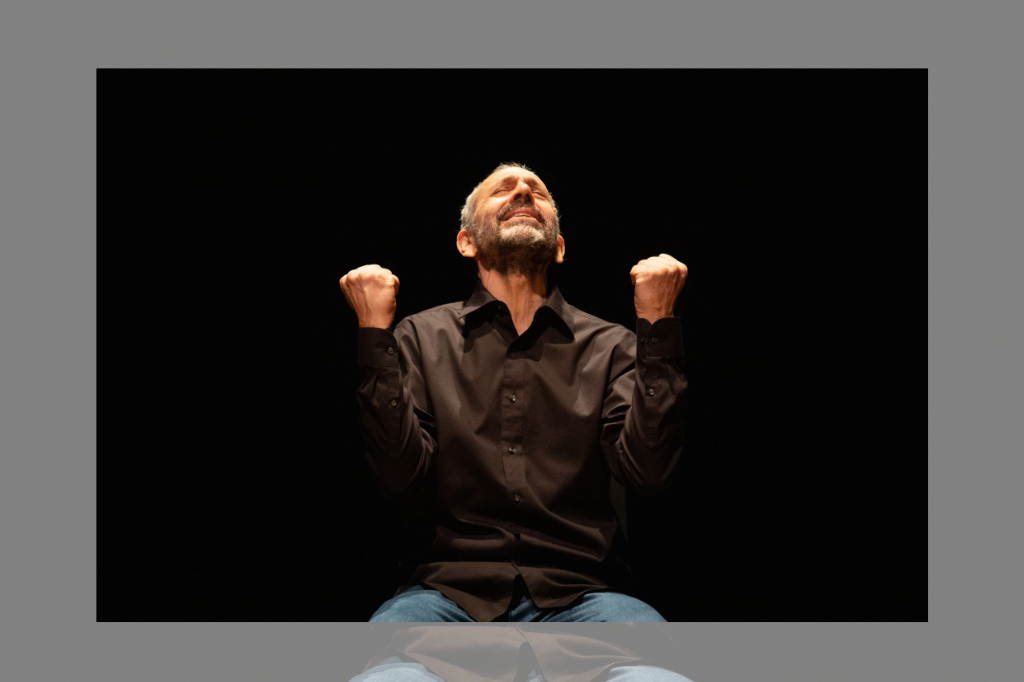

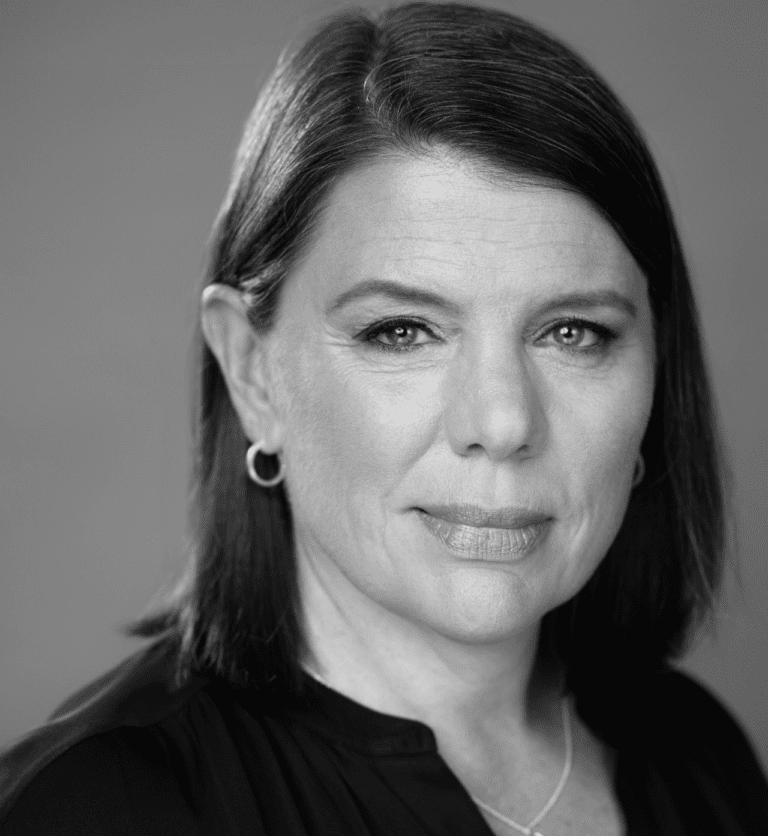






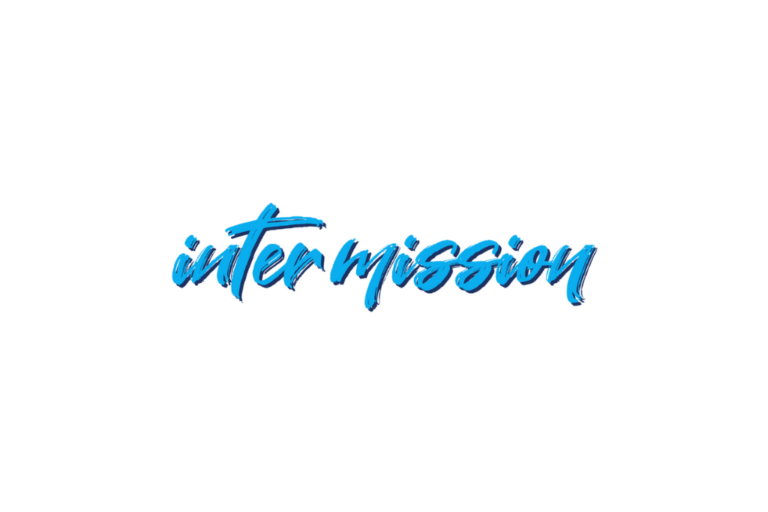
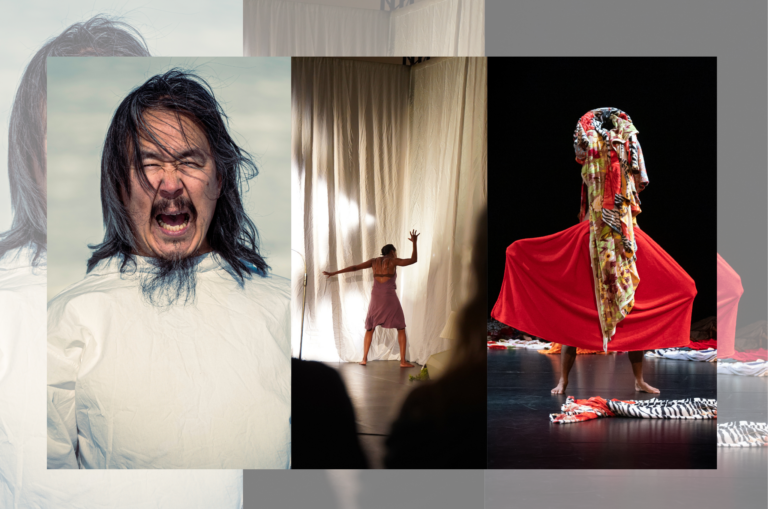

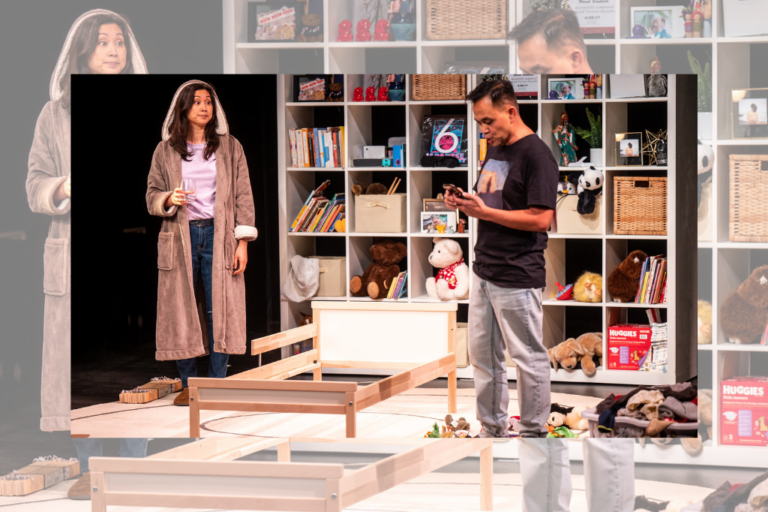
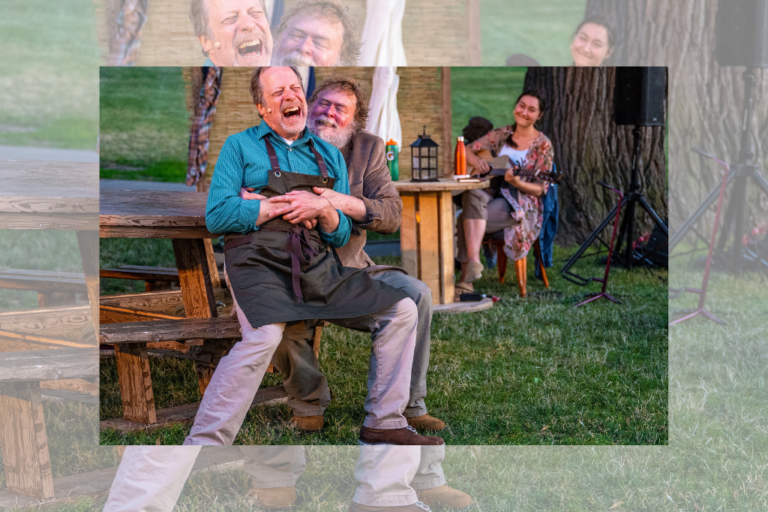
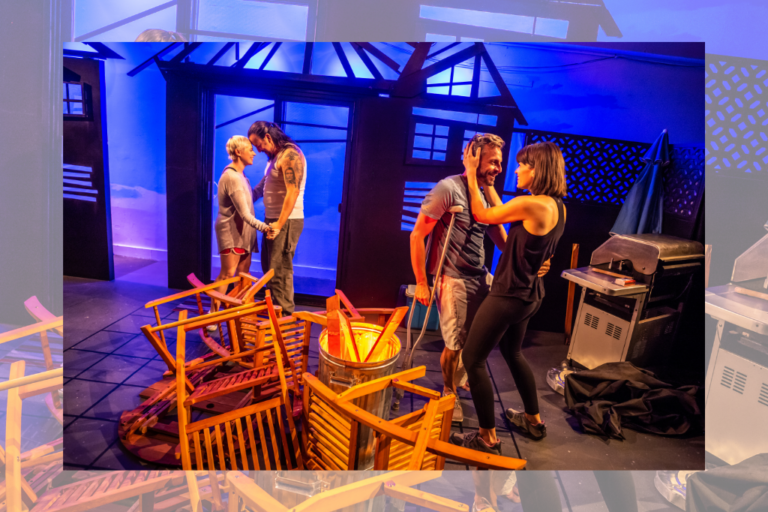
Comments